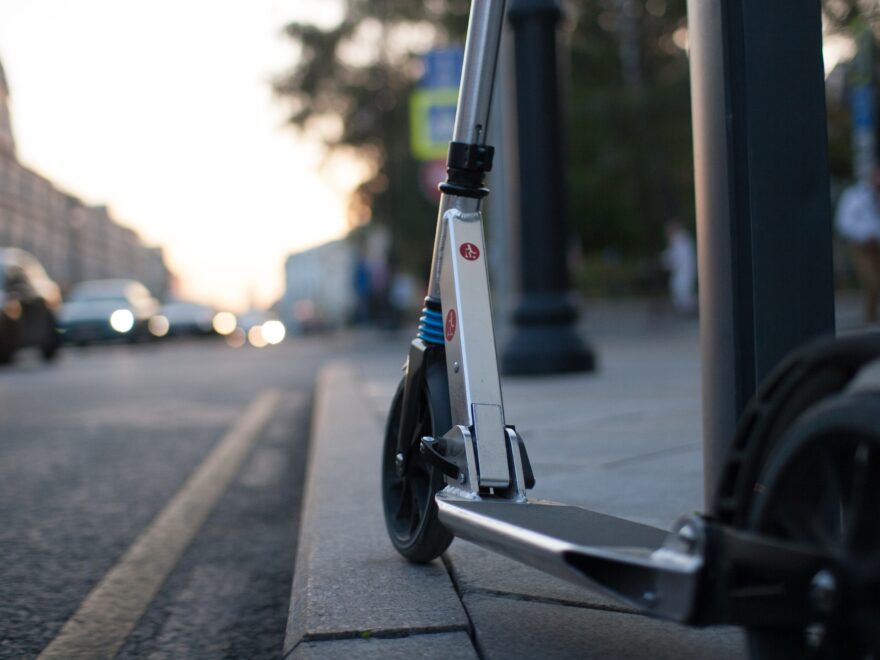Cycle SOS, the leading specialist in cycling accident claims in the UK, is raising awareness about the safety hazards and legal implications surrounding uninsured e-scooters on our streets.
E-scooters have become a popular mode of transportation in the bustling streets of the UK, attracting both commuters and leisure-seekers with their sleek design and eco-friendly appeal. However, alongside their rising popularity, the number of accidents involving e-scooters has significantly increased. From minor incidents to more serious injuries, the safety concerns associated with e-scooters call for greater awareness and regulation.
According to reports up to June 2022, there have been 1,349 reported collisions involving e-scooters, marking a 27% increase compared to the previous period. Out of these collisions, over 1,000 involved a third party, with 342 third-party casualties and a total of 1,437 casualties. Shockingly, these accidents resulted in the death of 11 riders and one third party, with the majority of injuries occurring to pedestrians and cyclists.
Navigating the legal landscape of e-scooter usage is challenging. Only e-scooters authorised under the Trials authorised by the Electric Scooter Trials & Traffic Signs Regulations 2020 are legally allowed to be ridden on the highway, providing a greener alternative to cars and public transport. However, all other e-scooters are being used illegally, making it almost impossible to insure these vehicles. This legal paradox puts riders and pedestrians in a precarious position.
A legally sanctioned e-scooter may only be ridden by a person aged 16 or over, holding at least a provisional licence. A helmet is not mandatory. The maximum speed should not exceed 15.5mph, weight should not exceed 55kg, and the motor should not exceed a 500-watt power output (double that of e-bikes).
The lack of insurance coverage for illegally ridden e-scooters has significant implications. Riders are personally liable for any accidents, injuries, or losses they cause, often without being aware of the risks involved. For victims of e-scooter accidents, the absence of insurance can make claiming compensation complex and challenging, as the rider is unlikely to have financial resources. Consequently, claims are directed to the Motor Insurers Bureau, which compensates victims of uninsured and untraced motorists.
To protect oneself against the risks posed by uninsured e-scooters, it is essential to explore insurance options. Some Home and Contents or bespoke Cycle Insurance policies may offer Unsatisfied Judgment Recovery provisions, which can provide a safety net in the event of an accident involving an uninsured e-scooter, covering medical expenses and other costs. However, insurance alone cannot prevent accidents. All road users must practice safe driving and riding habits, and e-scooter riders should familiarise themselves with and adhere to the rules of the road.
In the unfortunate event of an e-scooter accident, seeking legal assistance promptly is crucial. Preserving evidence plays a vital role in these cases, and a swift response increases the chances of a successful claim. Whether it involves capturing photographs of the accident scene, obtaining witness statements, or gathering medical records, every piece of evidence strengthens the case. However, dealing with the aftermath of an accident can be overwhelming, and that’s where Cycle SOS comes in. Bob Coupland, Head of Bike Claims at Cycle SOS, assures, “Our mission is to ensure that every cyclist receives the support they need after an accident. With the rise of e-scooters, we are facing new challenges on our roads. We are here to help navigate these challenges and advocate for safer streets for everyone.”
Cycle SOS handles the legal aspects of the claim, including evidence gathering and negotiation with insurance companies, allowing victims to focus on their recovery. To learn more about Cycle SOS and the support they offer, please visit https://www.cycle-sos.co.uk/.

